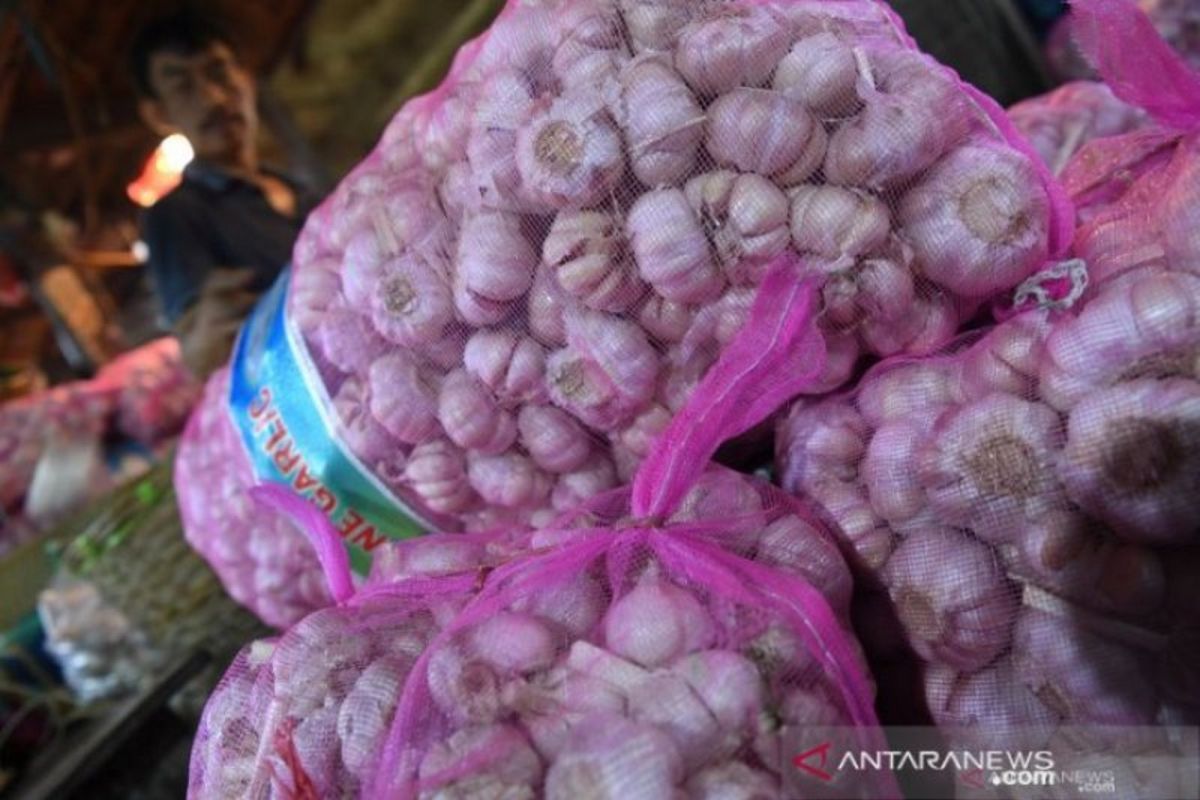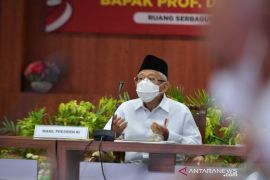Economic pressure on China will potentially impact partner countries, including Indonesia, in the fields of tourism, international trade, and investment flows, among other things.
Fithra Faisal Hastadi, an economist at the University of Indonesia (UI), on Feb 21, 2020, forecast that the coronavirus outbreak will potentially lower Chinese economic growth by one percent, thereby resulting in a 0.09-percent contraction in the Indonesian economy this year.
Every one-percent drop in the Chinese economic growth will reduce the Indonesian economic growth by a minimum of 0.09 percent and a maximum of 0.1 percent to 0.15 percent.
He noted that the potential drop of 0.09 percent in the Indonesian economic growth owing to the coronavirus outbreak is relatively small as compared to that of other countries.
This will likely occur since the Indonesian economy is more dependent on the domestic factor. Hence, in the event of any external upheaval, it will have no significant impact on the Indonesian economy.
He believed that the Chinese economy will recover by taking a cue from the SARS case in 2003 that had caused a decline in the Chinese economy, but it was eventually able to record a 14-percent growth.
Amid the sluggish global economy, President Joko Widodo (Jokowi) has decided to intensify investment as a means to spur the country’s economic growth.
"Investment is the only way to boost economic growth," the president noted in his opening remarks during the 2020 National Coordination Meeting on Investment on Feb 20, 2020.
Jokowi remarked that the global economy is currently in an unfavorable condition over the trade war, coronavirus outbreak, and other situations in several regions that are not conducive to the global economic rise.
He noted that since the market was down, it was impossible for Indonesia to boost exports. Hence, capital inflow, in the form of investment, serves as a path to economic improvement.
Despite the threats, the Indonesian government is yet to take a decision on revising its economic growth forecast of 5.3 percent for this year.
"We will first look at its impact on our economy. Of course, it will affect China's GDP," Indonesian Finance Minister Sri Mulyani Indrawati noted at a press conference in Jakarta recently.
Most importantly, China has made utmost efforts to prevent the spread of coronavirus by restricting the mobility of its citizens in a way that the coronavirus outbreak can be kept under control and not reach pandemic status, she stated.
With projected improvement in China's economy, the minister believes the global economic performance can still be kept under control.
Moreover, the Indonesian government has prepared a budget stimulus to maintain the domestic condition.
She further highlighted the risk of a Chinese economic slowdown owing to the coronavirus outbreak. The occurrence may disrupt Chinese tourist arrivals in Indonesia since China is the second-largest source of tourist arrivals in Indonesia after Malaysia.
On the trade side, the coronavirus outbreak may disrupt Indonesia's exports to and imports from China. Nearly 27 percent of Indonesia's non-oil/non-gas imports and 16.7 percent of its exports are directly related to China, she pointed out.
Earlier, Tourism and Creative Economy Minister Wishnutama Kusubandio has forecast that the ongoing onslaught of the coronavirus might inflict potential losses of US$2.8 billion on Indonesian tourism.
China tops the list of sources of tourist arrivals in Indonesia, with an estimated two million tourists and total spending of US$14 thousand per tourist, according to the ministry’s data.
The Indonesian government has set a target of foreign exchange earnings from the tourism sector for 2020 at US$21 billion, or US$1 billion higher than the 2019 realization of US$20 billion.
In the meantime, the Indonesian government is initiating several measures to protect the country’s economic performance from the impact of the coronavirus outbreak.
"The government will take anticipatory and responsive steps by maintaining the purchasing power of the public and encouraging productive activities," acting Chief of the Communication and Information Service of the Finance Ministry Nufransa Wira Sakti stated.
The measures to prevent the economic slowdown include expediting the realization of budget expenditures at ministerial and non-ministerial government agencies, particularly expenditures on social assistance and non-operational expenditures.
Furthermore, the government will encourage tourism centers through various supporting programs, including expediting the development of five super-priority tourism destinations, such as Lake Toba, Borobudur Temple, Likupang, Labuan Bajo and Mandalika and prepare fiscal and non-fiscal policies to boost the tourism sector.
The government will also encourage and expedite labor-intensive expenditures for productive activities that employ several workers and infrastructure expenditures at central and regional levels.
Mari Elka Pangestu, newly appointed World Bank's managing director of development policy and partnerships, projects Indonesia's 2020 first-quarter economic growth to remain in the five-percent range despite rising global economic pressure over the coronavirus outbreak.
"I think we expect (the economic growth) to lie at around five percent, yes," Pangestu stated after a meeting with President Joko Widodo (Jokowi) at the Bogor Palace, West Java, recently.
Pangestu spoke of a possibility of Indonesia's economic growth in the first quarter of 2020 to be below five percent. However, the opportunity to maintain economic growth in the range of five percent is still open if the government is able to offer stimulus to maintain the people's purchasing power.
Pangestu expects the government to encourage domestic growth by improving the people's purchasing power. Indonesia can realize this since it has a relatively large domestic market.
In the state budget, the government has assumed an economic growth of 5.3 percent in 2020, while Bank Indonesia is targeting domestic economic growth to lie in the range of 5.1 to 5.5 percent this year.
In the investment field, China's investment inflows into Indonesia had yet to be affected, but the government is examining measures necessarily taken as a precautionary measure against any potential decrease.
Investment Coordination Board (BKPM) Head Bahlil Lahadalia recently drew attention to the fact that if these coronavirus cases could not be stopped within the next two months, he would be concerned with the larger scope of its impact that would also hit China's investments in Indonesia.
"In terms of investment realization, China ranks second after Singapore. Hence, we are conducting a thorough examination of necessary measures that we need to take as a precautionary measure against the impact of this new coronavirus," he stated.
In 2019, with total investment reaching US$4.7 billion, China ranked second after Singapore as the biggest contributor of foreign investment for Indonesia. Singapore's total investments were recorded at $6.5 billion.
In connection with the trade sector, China is Indonesia's primary export destination, with a market share of 16.6 percent of its total exports. At the same time, China is Indonesia's biggest import source.
To this end, Indonesia needs to be cautious over the impact of the coronavirus and slowdown of China's economy on Indonesia's exports.
Related news: Indonesian economy projected to decline 0.09 percent over coronavirus
Related news: Opportunities arise for pharmaceutical industry amid Covid-19 outbreak
Related news: Government undecided over revising 2020 growth forecast of 5.3 percent
Editor: Sri Haryati
Copyright © ANTARA 2020












